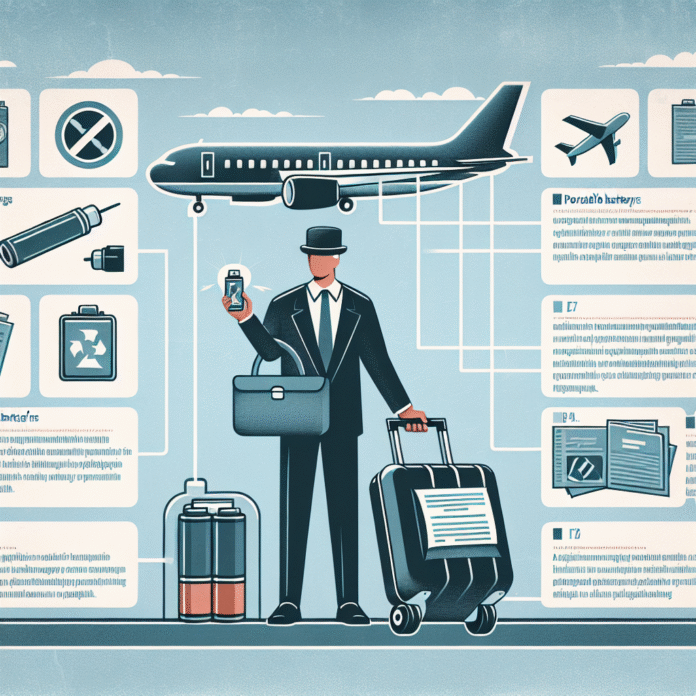Changes to Portable Battery Regulations for Air Travel
Changes to Portable Battery Regulations for Air Travel
As air travel continues to evolve, new regulations regarding portable batteries on planes are being implemented. Travelers need to stay informed about these changes to ensure a smooth experience at the airport and in the air.
Understanding the New Guidelines
The latest updates to the rules governing the transport of portable batteries, such as those used in laptops, smartphones, and other electronic devices, aim to enhance safety while accommodating the increasing reliance on these technologies. Passengers are now required to adhere to specific guidelines concerning the size and type of batteries they can carry onboard.
Size and Wattage Restrictions
One of the most significant changes pertains to the watt-hour (Wh) rating of lithium-ion batteries. Generally, batteries with a capacity of up to 100 watt-hours are permitted in carry-on luggage without prior approval. However, batteries ranging from 100 to 160 watt-hours may still be allowed, but only with airline approval. Batteries exceeding 160 watt-hours are typically prohibited on passenger aircraft.
Proper Packing and Handling
To ensure safety during flight, passengers must also follow proper packing guidelines. Batteries should be protected from short-circuiting by covering their terminals with tape or placing them in protective cases. Loose batteries are not allowed in checked luggage, as they pose a fire risk. Instead, they should be transported in carry-on bags where they can be monitored.
Traveling Internationally with Batteries
When flying internationally, travelers should be aware that regulations may vary by country and airline. It’s crucial to check the specific rules of the airline and the destination country before packing portable batteries. Some regions have stricter guidelines, and failing to comply can result in confiscation or fines.
Emergency Procedures and Safety Measures
Airlines are implementing enhanced training for crew members to address incidents involving portable batteries. Passengers are encouraged to familiarize themselves with emergency procedures related to battery fires, which can be triggered by damaged or defective batteries. Knowing how to respond in such situations can help prevent injuries and ensure the safety of everyone on board.
Future of Battery Technology and Regulations
As technology advances and battery capacities increase, regulations may continue to adapt. The aviation industry is closely monitoring developments in battery technology, particularly with the rise of electric vehicles and portable power sources. Passengers should remain informed about potential changes to regulations and how they may affect air travel.
In conclusion, understanding the evolving rules regarding portable batteries on planes is essential for a hassle-free travel experience. By keeping informed and following the updated guidelines, travelers can help ensure their safety and that of fellow passengers while enjoying the convenience of their electronic devices.
